Deirdra is a holistic health professional and a cannabis health coach. She has a Masters in Public Health and is the founder of The Uplift Movement, “a resource for ‘higher’ health education and plant-assisted therapy.” Through her work, Deirdra empowers her clients to find relief from chronic health conditions, anxiety, depression, eating disorders and addiction by using plant medicine, dance, yoga, mindfulness and self-compassion. Deirdra’s own life has been transformed by these practices and therapies, and she is passionate about sharing them with others.
As you know, you were my very first mindfulness teacher. You introduced me to the world of mindfulness and self-compassion, and both have made a huge difference to my life, so I’m very excited to talk to you about this!
To start, what does mindfulness mean to you in your life?
It is this ongoing practice that just continues to deepen my love and self-compassion and presence, and continues to elevate my awareness, as well. It’s amazing, when you realize you’ve been spaced out for so long and then when you can all of a sudden tune in and check in and be present. So, it’s an ongoing practice for me and I’ve noticed that it just helps me show up authentically and be available to others in a more authentic way.
I think that’s so amazing and it’s so true, because it really is so much about how you show up authentically. And the only way to really do that is to have that awareness, to have that mindfulness.
Yes, exactly!
What did your journey towards a mindful lifestyle look like? When did it first show up in your life and how did you get started?
It was really funny because students come in and they come to you to learn something, but then I would end up learning something from them too. There’s this mutual growth and learning there. I was teaching Yoga, and I was starting to work with clients, and I was very new as a Yoga teacher. When I was learning to become a Yoga teacher, mindfulness wasn’t really brought up, the focus was really on just Yoga. Of course we talked about taming the whirlings of the mind — that’s what Yoga is about, yoking and bringing the mind and body together — but the mindfulness connection didn’t sink in for me at that moment yet. It wasn’t until I was teaching at a studio and I had a student that was having difficulties — just very stressed, lots of anxiety — and she had told me that Yoga was really helping her, but also mindfulness and self-compassion. She told me that she had just started to take a course at InsightLA and I thought it sounded interesting. And, you know, we’re open, we want to be open, we want to learn more… So I went to the InsightLA website and I checked out one of the courses they were having and took it, and it just blew my mind. It was a whole new level of meditation.
“The thing is that practicing awareness, self-acceptance, lovingkindness, mindfulness and self-compassion, these are things that we aren’t necessarily taught.”
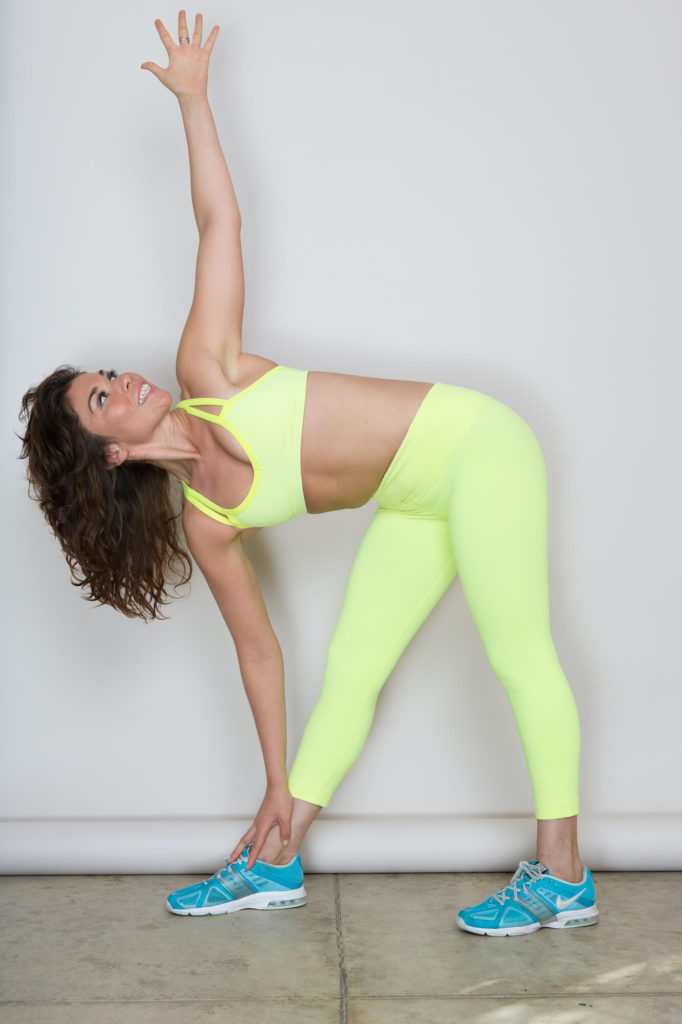
Deirdra practices yoga daily for mindfulness and self-compassion
Do you have a daily mindfulness and self-compassion practice? What does it look like?
I do a couple of different things…I really like to practice something every day; whether that’s while I’m driving, or how I communicate with my husband. I really am very intentional about that, to practice small moments of mindfulness and self-compassion throughout the day. Then, I also do a lot of Ujjayi breathing [an ancient Yogic breathing technique]. I just ask myself “where’s my breath?” throughout the day and reconnect with it constantly. The breath is so powerful. I think, because I’ve been doing it for a long time now, it’s kind of in my practice in general, but then I also make it a point to teach it too. Because, when you teach something, you have to practice what you teach, so I always like to make sure that I’m offering different practices to my students.
But it really is just such an ongoing practice. We have so many distractions in life — literally, everything is a distraction in some shape or form — and, in a way, sometimes being in a trance or sometimes not being mindful, can also teach us something. And that’s part of our evolution and our growth; a reminder that there’s still something we need to work on, and that can be beneficial also.
The thing is that practicing awareness, self-acceptance, lovingkindness, mindfulness and self-compassion, these are things that we aren’t necessarily taught. And it’s not that we aren’t taught because our parents didn’t love us or anything like that, it’s culture and social programming and how we interpret things, and it’s all very complex. But that’s why I think it’s just so powerful, in terms of our own evolution, because when we do become mindful and we practice it, we can change; we can change our habits and become more authentic, and it can heal so many things within us.
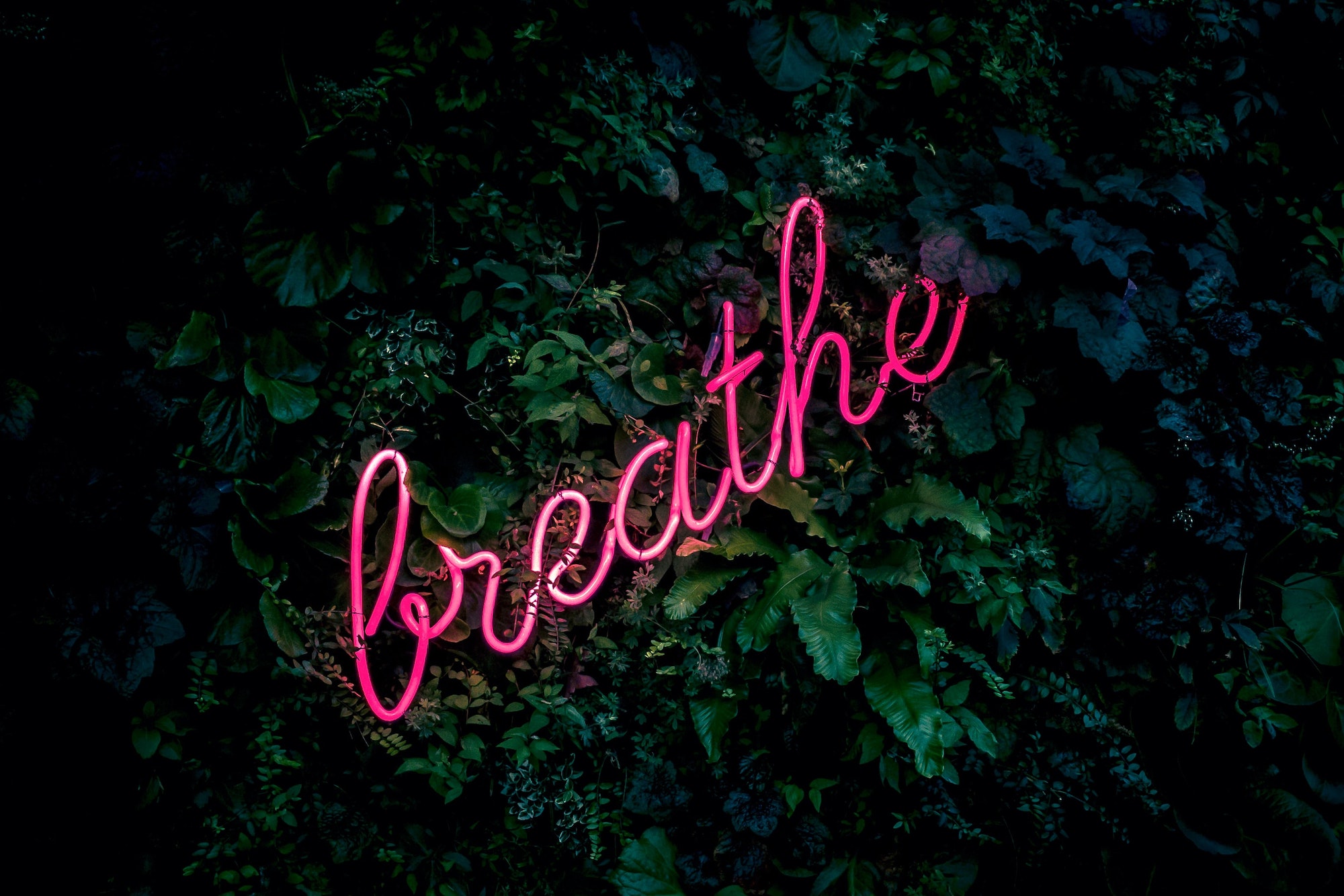
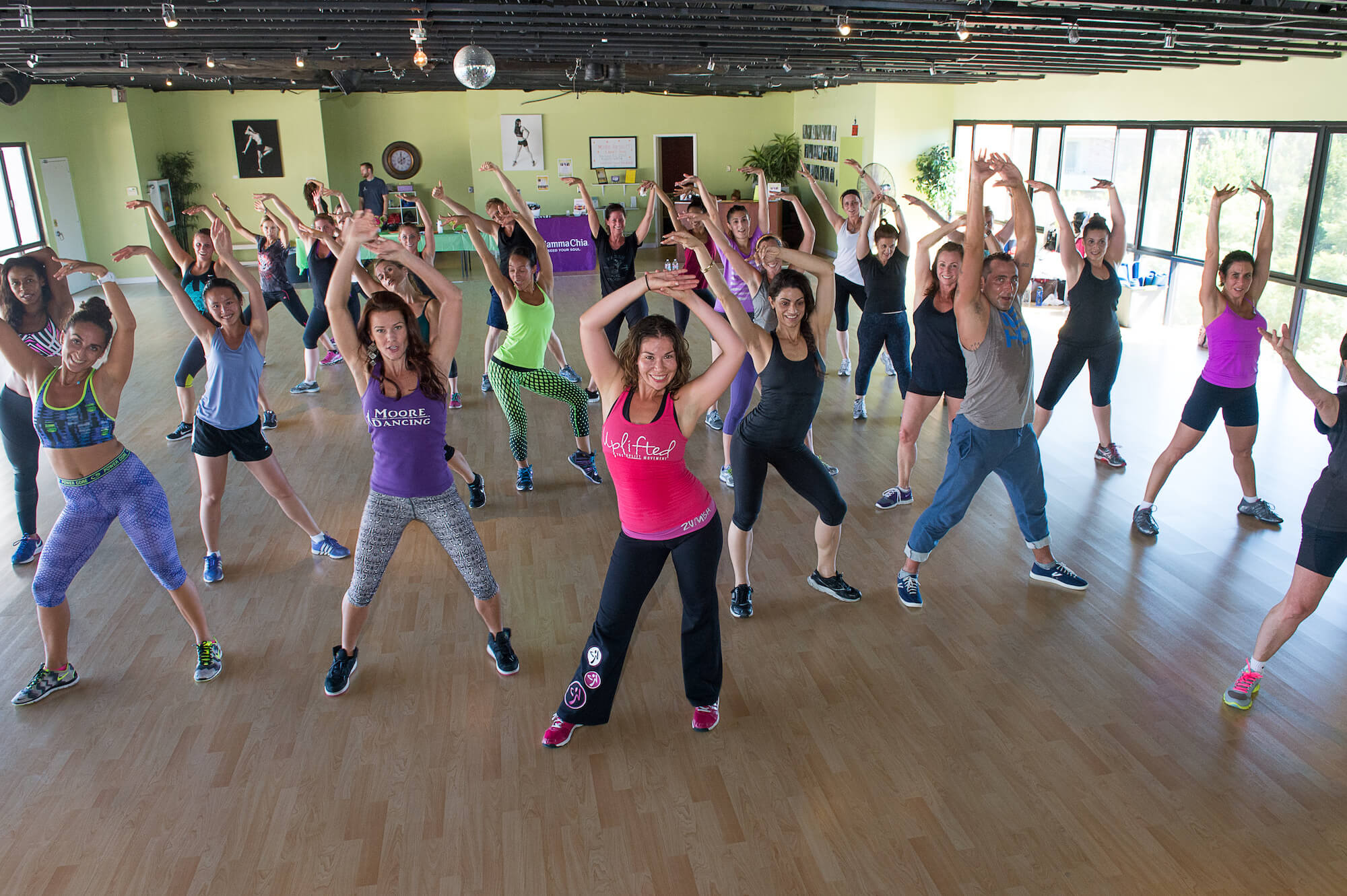
What are some of your go-to mindfulness tools, other than tuning into your breath, which you’ve already talked about?
Yoga. Yoga is a big one. Because I’m one of those people that had a really hard time sitting still to meditate. I just really felt I couldn’t do that. For me to learn Yoga first was a nice entryway into just being able to sit and be still. So, I’ll do the combination of both. When I’m doing my Yoga practice, I tend to like Hatha [a branch of Yoga designed to align and calm body, mind and spirit] more because it’s basically a moving meditation, and you get to witness everything that starts to come up. You really have to ground into being present and focused on your breath to allow that mindfulness and self-compassion to come up. So, I love that, and it’s another thing that I do pretty much daily.
Also, being present with whatever your mojo is — for me that’s dance, so I dance and that’s how I also practice my mindfulness, because I have to be very present in my body but I have to let go at the same time. Whenever I’m teaching dance, I’m very much in a mindful, present sort of space. For some people, their mojo might be painting and for others it might be being out in nature…whatever helps you to wake up those senses to get you connected again.
For someone who is just starting to get into mindfulness, would you recommend breathwork as the easiest tool to start using?
I think it’s a simple way to right away get people to feel and notice a difference. Because most people don’t have that connection of noticing how they’re breathing in any given moment — they might be shallow-breathing or holding their breath. That simple practice can be very powerful. Just paying attention to your breathing, that’s the first step, and then starting to notice what starts to happen in your body as you breathe. The next step is noticing what starts to happen in your mind, the narrative that comes up. Everybody has that voice in their head, and when you begin to hear your breath and you’re focused on your breathing, it’s hard to hear that narrative because you’re listening to your breath. That’s why, particularly the Ujjayi breath, I think that is a very powerful tool.
Do you have some favorite mindfulness teachers that you turn to regularly?
Yes! I love Tara Brach. I really love Jack Kornfield also, he’s amazing, and Eckhart Tolle. There’s other teachers that I really like too, that teach the principles of it, like Wayne Dyer and even Oprah! Michael Singer, he wrote The Untethered Soul, such a beautiful book; it’s all about introducing the voice of mindfulness and I found that really powerful. He also has another book about unconditional acceptance and surrender, and ultimately that’s what I try to practice…it can be hard, but it’s all about going with the flow.
You can follow The Uplift Movement and Deirdra on @theupliftmovement

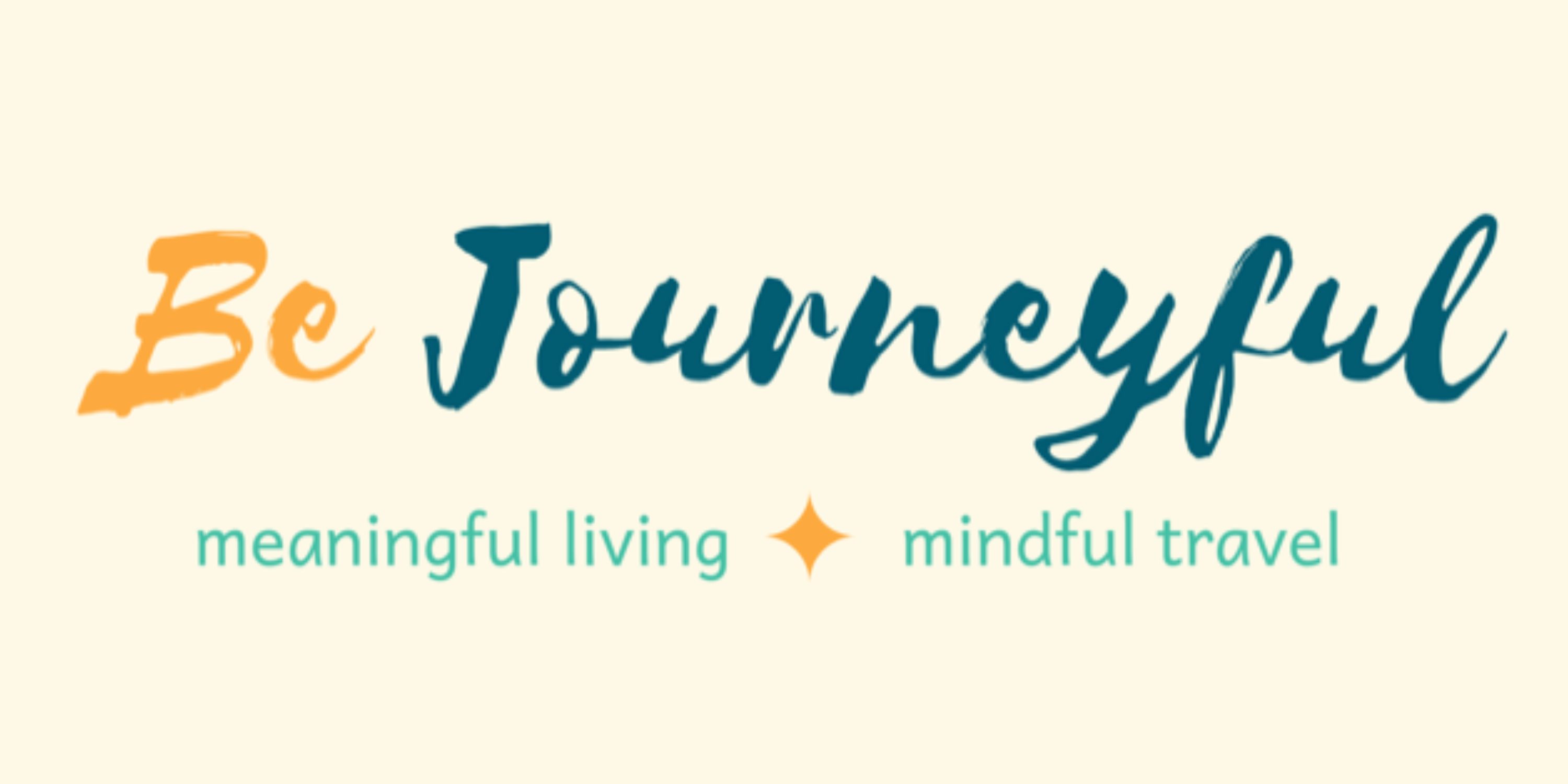
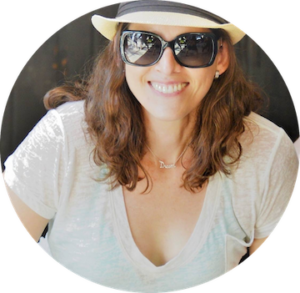
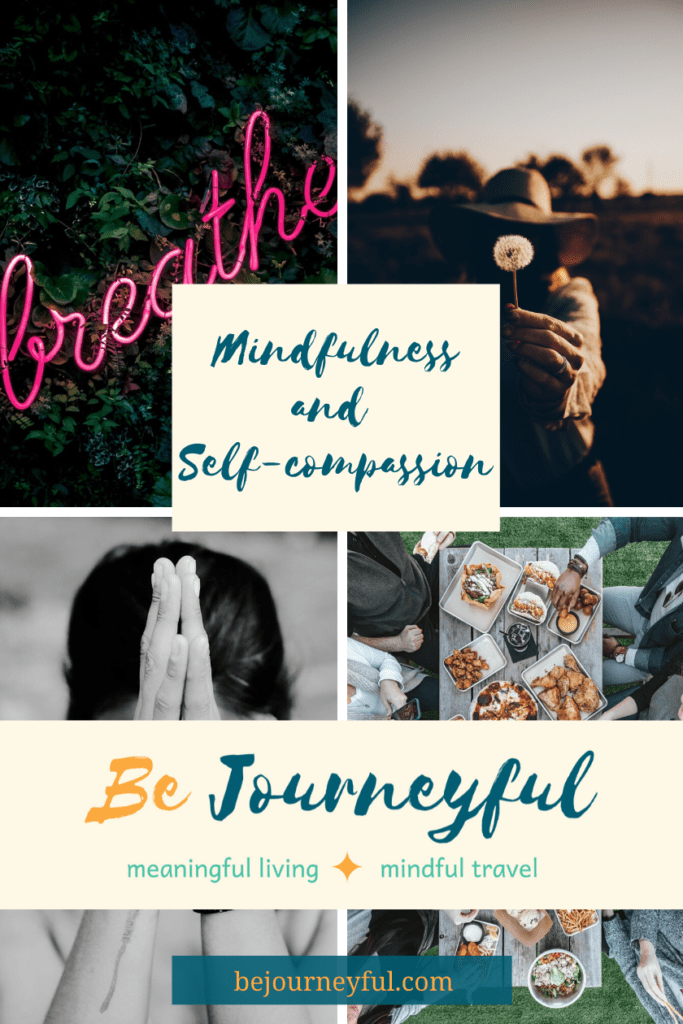
Recent Comments